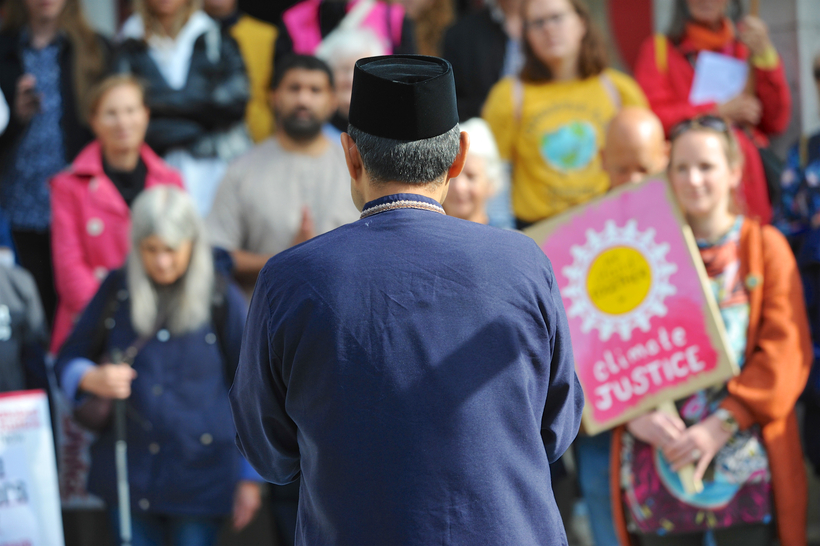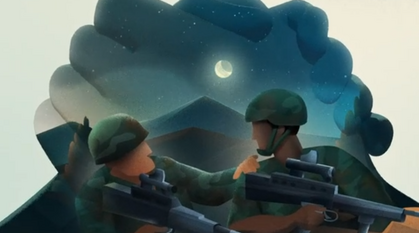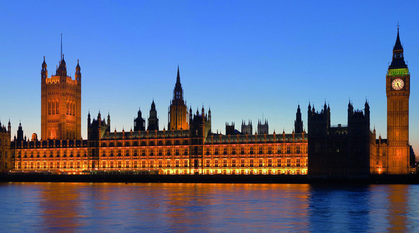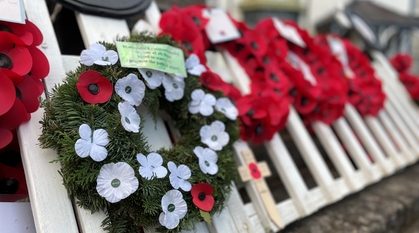Loving your neighbour
Paul Parker reflects on having neighbours and being a neighbour. How does Quaker faith shape the ways we behave within the neighbourhood of all people?

Like you, I am surrounded by my neighbours, and steer my course among them.
- My neighbour is the person next door.
- My neighbour is the banker who has made good money in the city.
- My neighbour is the refugee from Afghanistan, who walked for two years and crossed the seas to get here, and hopes one day to go home.
- My neighbour is the young person whose mental health is in crisis.
- My neighbour is my relative who is feeling their age.
- My neighbour is the person who sits next to me at my Quaker meeting, and speaks so powerfully about their encounter with the divine.
- My neighbour is the protester who is arrested for holding a placard in support of a proscribed organisation.
- My neighbour's great-great-grandmother was enslaved by a plantation owner and her children bear his name.
- My neighbour is flying a St George's flag because all politicians are the same and no-one is looking out for him.
- My neighbour is the person who is afraid to be vaccinated.
- My neighbour is the friend I met at university who now works in the inner city.
- My neighbour is the teacher who helps children work harmoniously together.
- My neighbour is the MP who voted to send undocumented migrants to Rwanda.
- My neighbour is the person who is afraid her job will go to someone from another country and her children will go hungry.
- My neighbour is the person whose marriage has fallen apart who is feeling lost and alone.
- My neighbour is the person who made my trousers in a factory in China.
- My neighbour is the farmer whose crops have failed because the rains didn't come.
My relationships with all these neighbours are not all the same. Some are comfortable; some are hard or distant; some are connected to me personally; some of us are joined by complex global systems and economics. Some relationships demand effort from me, some demand effort from others toward me, some demand both, some fall into easy familiar patterns. We humans are connected in a neighbourhood made up of a complex web of relationships.
Our faith calls us to love our neighbour. Through these relationships with one another of all kinds, our love for one another flows.
Religion is about relationships between people
George Gorman, 20th century Quaker, said: "One of the unexpected things I have learnt in my life as a Quaker is that religion is basically about relationships between people. This was an unexpected discovery, because I had been brought up to believe that religion was essentially about our relationship with God. … I do not think I am alone in my certainty that it's in my relationships with people that the deepest religious truths are most vividly disclosed."
So for me, 21st century Quaker, living among these neighbours, and loving them all, is inextricably tied up with my faith. Through my relationships with my neighbours, I come to understanding something of the divine which is in us all.
One of the first Quakers, George Fox, wrote, "be patterns, be examples in all countries, places, islands, nations, wherever you come, that your carriage and life may preach among all sorts of people, and to them; then you will come to walk cheerfully over the world, answering that of God in every one."
Quaker testimony is a way of telling the truth through action
That recognition that there is 'that of God in every one' is fundamental to how I as a Quaker see the world. If there is a divine flame which burns in you, then I cannot hurt you without hurting the divine; from that comes our testimony of peace. If there is something of God in you as well as me, then we are spiritual equals; from that stems our testimony of equality. If I take more than my fair share of the world's resources, then I am denying the divine in you its portion; this lies behind our testimony of simplicity. And if I deny your story because I know better, then I am not open to that of God in you; therein lies our testimony of truth.
None of this makes following that call to love your neighbour easy or straightforward. The existence of wars, climate breakdown, the great gulf between rich and poor and the injustices which afflict minority groups are ample evidence of our human failure to live up to that call. But it remains at the heart of what it means for me to be a Quaker. And at meeting for worship each time I go I have a chance to connect with my spiritual guide in the stillness, to acknowledge how I fall short, and do my best, time after time, to correct my course.


